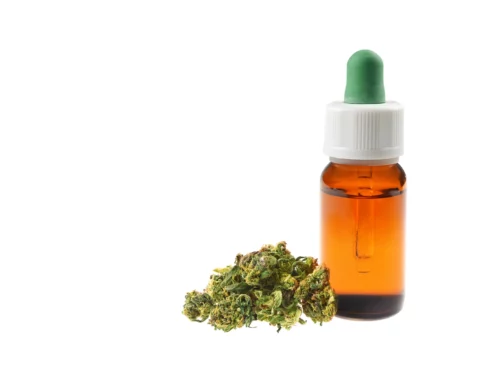Since CBD oil legalization in 2018, many people are now taking this product and have made it part of their lifestyle. People claim that CBD oil can help with pain, depression, anxiety, focus, energy, and concentration. CBD oil has attracted much hype and buzz. Many people suffer from allergies, are hypersensitive to what’s technically harmless, and live with debilitating symptoms because of allergies. Conventional medicine does not work for every person, while others have numerous side effects.
For this reason, you might wonder whether CBD oil could be the answer and if it can heal, treat, or prevent allergies. Generally, the FDA has not approved CBD oil for allergies, nor are there enough scientific studies to prove that it can help with allergic reactions. However, initial research and anecdotal evidence claim CBD oil can relieve allergies, as discussed.
Can CBD Oil Help with Allergies- What Studies Say
Despite the cannabinoid being approved, it is not a cure-it-all drug. Besides, you will less likely experience positive results when using CBD oil for allergic reactions, so you should not try it for allergies, mild and severe. Even though some come with side effects, you might experience better feedback with conventional allergy medications. However, a study by Argueta et al. (2020) suggests that CBD oil could fight pain and inflammation, the main allergy symptoms. Advanced scientific research is necessary to back these claims and conclusively recommend CBD oil for allergies.
CBD Oil for Inflammation
Inflammation should be a harmless process since it is the body’s mechanism for responding to external factors. However, acute inflammation, a phenomenon experienced when the body fights itself, is harmful to cells. In the case of allergies, immune cells react to harmless things like pollen, food, dust, and some chemicals and fight cells. As the inflammatory reactions continue, pain increases and other allergy symptoms like wheezing, coughing, sneezing, and breathing difficulty are experienced. According to Cabrera et al. (2021), CBD oil has anti-inflammatory properties and may fight inflammation. The findings promise relief for allergies in CBD oil. Nonetheless, more advanced studies involving human beings are needed to clarify whether CBD oil is anti-inflammatory and how this property might impact allergies.
CBD Oil for Pain
CBD oil has been used for pain by many, regardless of the type of pain, and you might wonder if it could help with pain from allergies. Limited research suggests that CBD oil might relieve pain. A review by Vučković et al. (2018) examined the findings of CBD studies on various types of pain from 1975 through 2018. The review established that CBD oil would relieve neuropathy, cancer, and fibromyalgia pain. While this sounds like it for pain management, the study does not mention allergy pain among the pains CBD oil could help with.
A Case Study of CBD Oil for Allergies
Although the FDA has not approved CBD oil for allergies, documented studies show a promising connection between CBD oil and allergies or their symptoms. However, such studies have limitations and do not offer sufficient scientific evidence to credit CBD oil for allergies. For instance, a study by da Franca et al., (2015) observed that administering α-pinene resulted in fewer allergic symptoms. α-pinene is a terpene, one of the multiple compounds in cannabis plants. While this study suggests that full and broad-spectrum CBD oil with terpenes could help manage allergic symptoms, it worked with rats, and there is no certainty that the results could be replicated in human studies. What’s more, CBD production is not FDA regulated, and there is the possibility of product misinformation. CBD oil products that promise to deliver terpenes might lack them.
How Much CBD Oil Should You Take?
Even though CBD consumption is quite popularized, there is no consensus on how much CBD oil is enough, primarily because the FDA does not regulate CBD oil production. Therefore, if you choose CBD oil for allergies, consult your doctor for dosage instructions. Generally, going slow and keeping the dosages low is recommended. Start with small dosages, say 20- 40 mg CBD oil, and increase them in 5 mg intervals every two weeks, when necessary. Besides, tracking how much CBD oil you consume versus the effects helps you know whether to maintain certain dosages or to adjust them and when to do so.
Key Reminders
Although CBD oil has attracted much hype and buzz, there is insufficient scientific evidence to prove that CBD oil could help with any of its purported benefits. The FDA has only approved one cannabis-derived drug, Epidiolex, for managing Dravet Syndrome and Lennox-Gastaut, two rare forms of epilepsy. Moreover, there are no recommended dosages for CBD oil, so you should consult your doctor before trying any CBD product for dosage instructions.
Conclusion
CBD oil is marketed to help with various conditions, including pain, depression, anxiety, illnesses, focus, concentration, and energy. Nonetheless, there is not enough scientific evidence to prove that CBD oil can help with these. The FDA has only approved one cannabis-derived drug for managing epilepsy. This article has examined the efficacy of CBD oil for managing allergies and their symptoms. Generally, CBD oil might not help much with allergic reactions, although a few studies claim that it might fight inflammation and pain that come with allergy. Still, if you choose CBD oil for allergies, consult your doctor beforehand to get dosage instructions.
References
Argueta, D. A., Ventura, C. M., Kiven, S., Sagi, V., & Gupta, K. (2020). A Balanced Approach For Cannabidiol Use In Chronic Pain. Frontiers In Pharmacology, 11, 561.
Cabrera, C. L. R., Keir-Rudman,
S., Horniman, N., Clarkson, N., & Page, C. (2021). The Anti-Inflammatory
Effects Of Cannabidiol And Cannabigerol Alone, And In Combination. Pulmonary
Pharmacology & Therapeutics, 69, 102047.
Da Franca Rodrigues, K. A.,
Amorim, L. V., Dias, C. N., Moraes, D. F. C., Carneiro, S. M. P., & De Amorim
Carvalho, F. A. (2015). Syzygium Cumini (L.) Skeels Essential Oil And Its Major
Constituent Α-Pinene Exhibit Anti-Leishmania Activity Through Immunomodulation
In Vitro. Journal Of Ethnopharmacology, 160, 32-40.
Vučković, S., Srebro, D., Vujović,
K. S., Vučetić, Č., & Prostran, M. (2018). Cannabinoids And Pain: New Insights From Old Molecules. Frontiers In Pharmacology, 1259.
- WHY CAN DRINKING ALCOHOL TRIGGER ANXIETY? - January 7, 2023
- WHAT IS ORGASMIC MEDITATION? BENEFITS + HOW TO - January 7, 2023
- THE BEST WAYS TO PREVENT WEIGHT GAIN THIS WINTER - January 6, 2023









